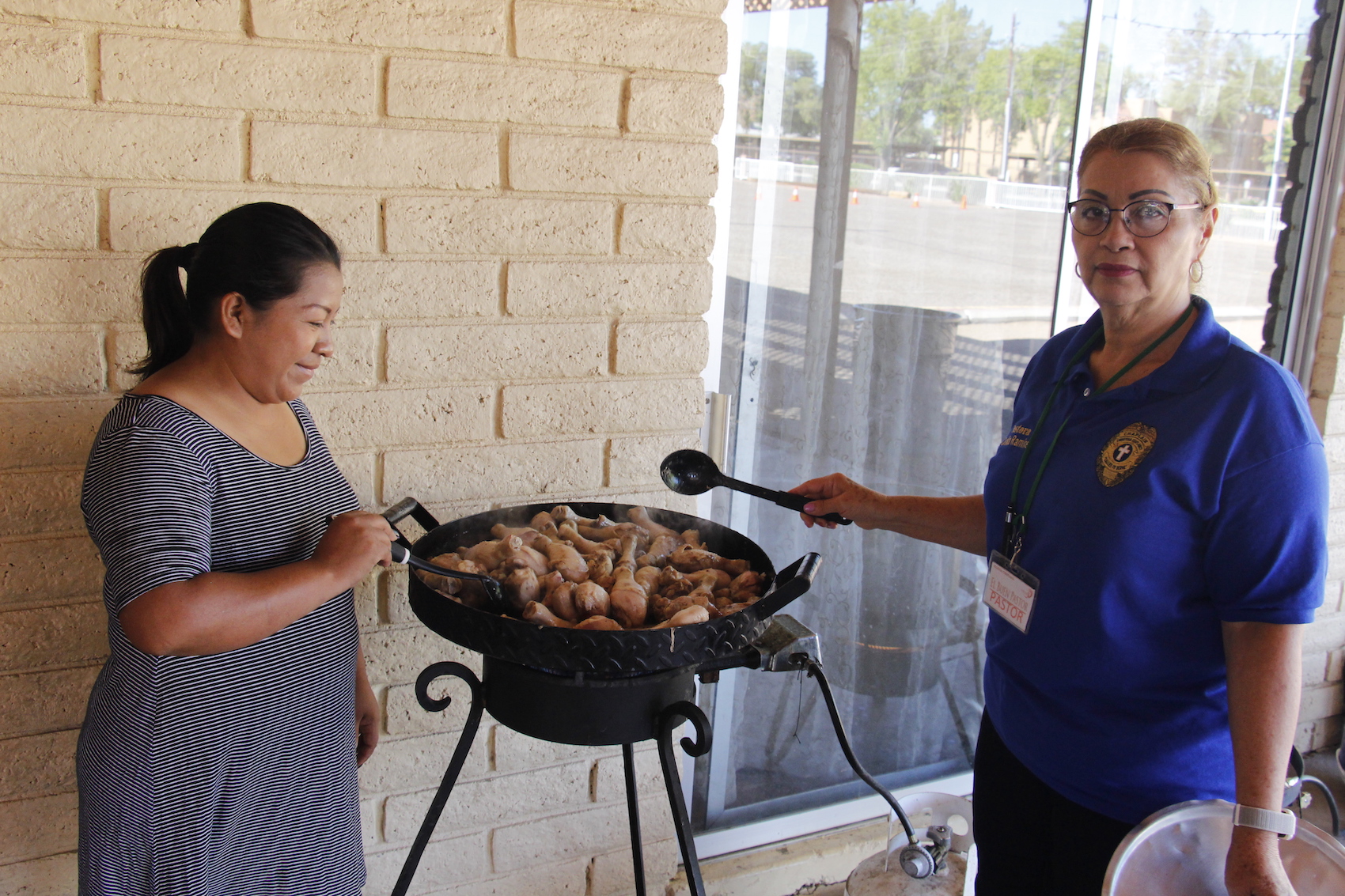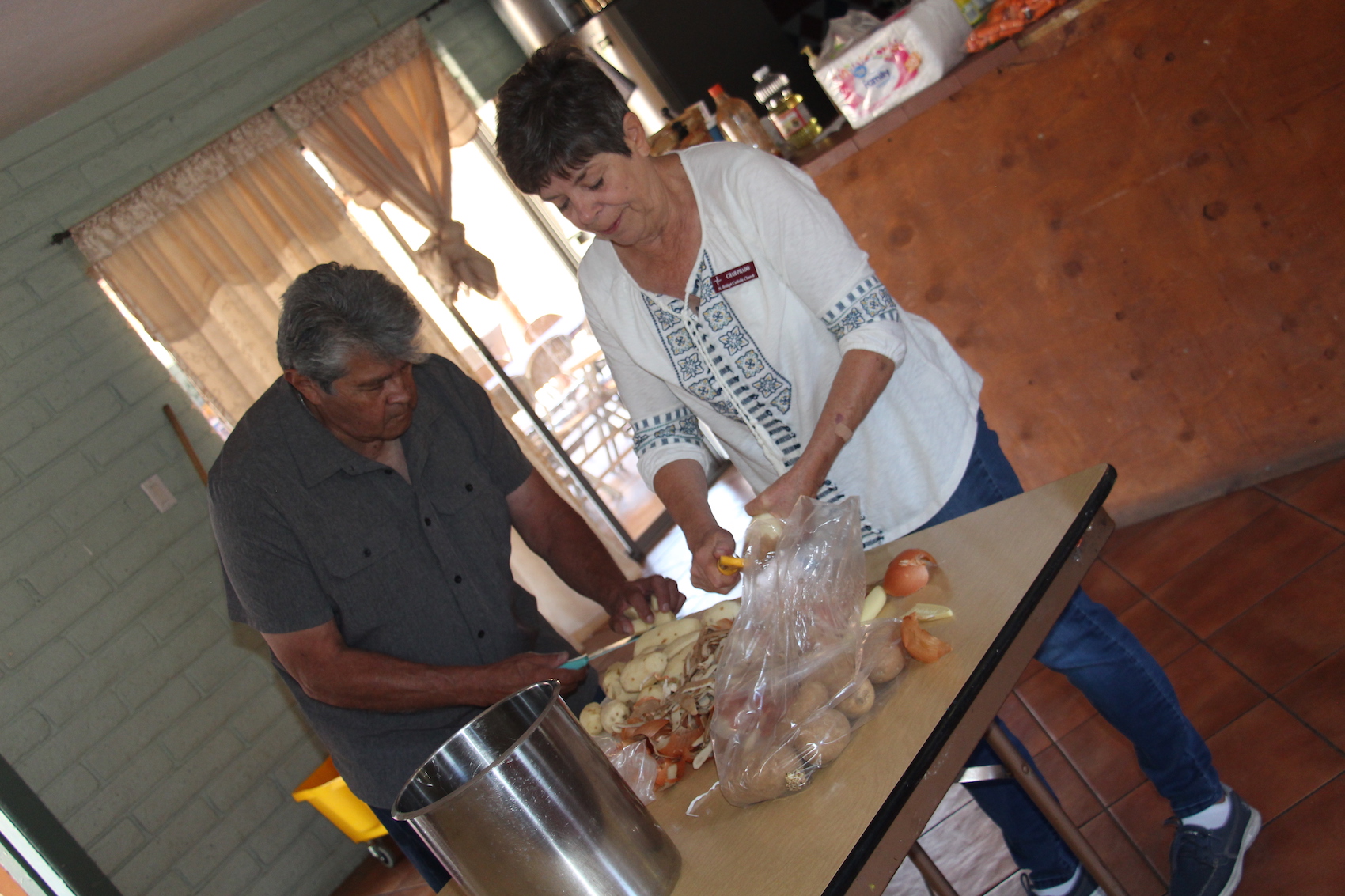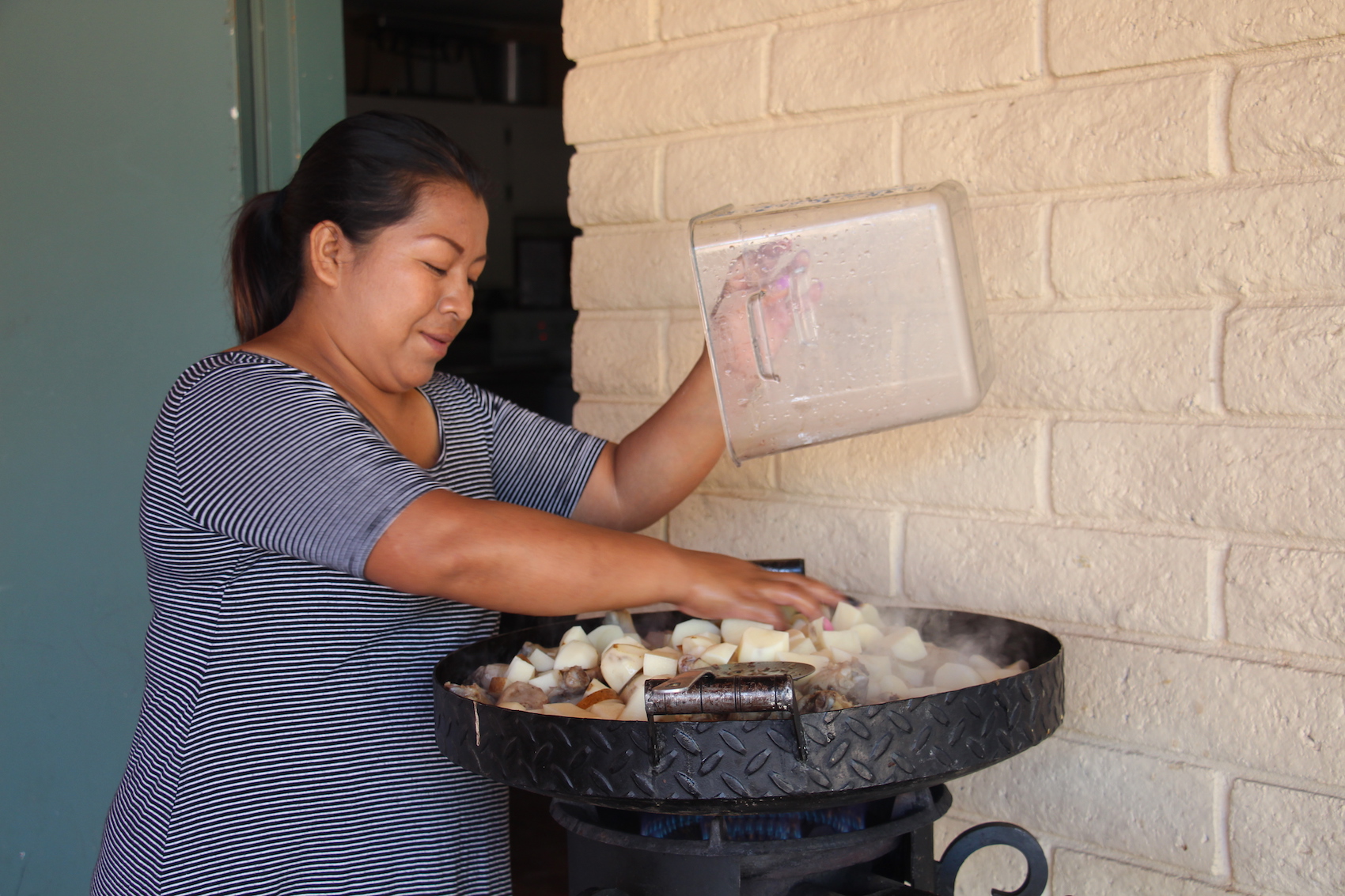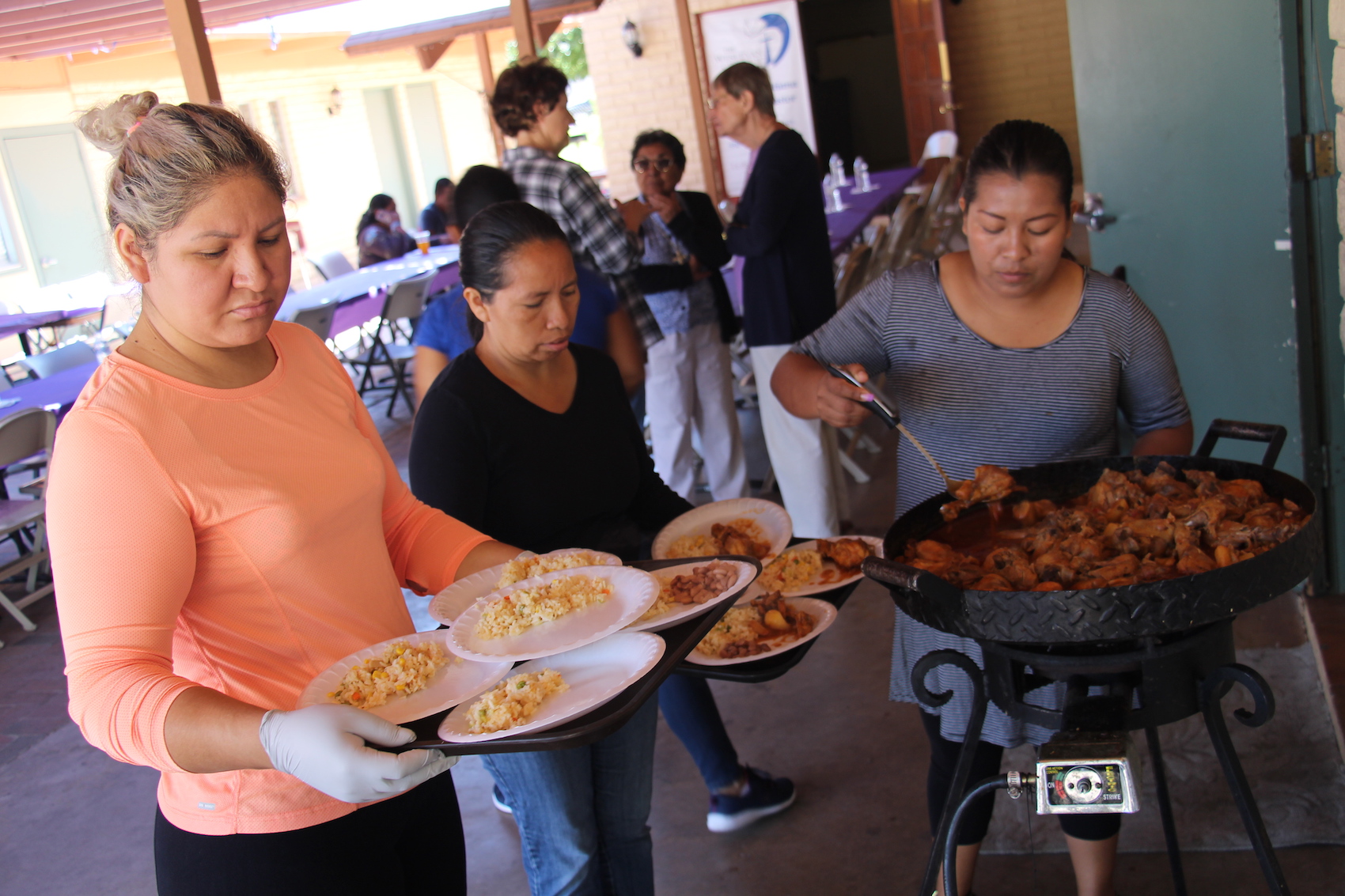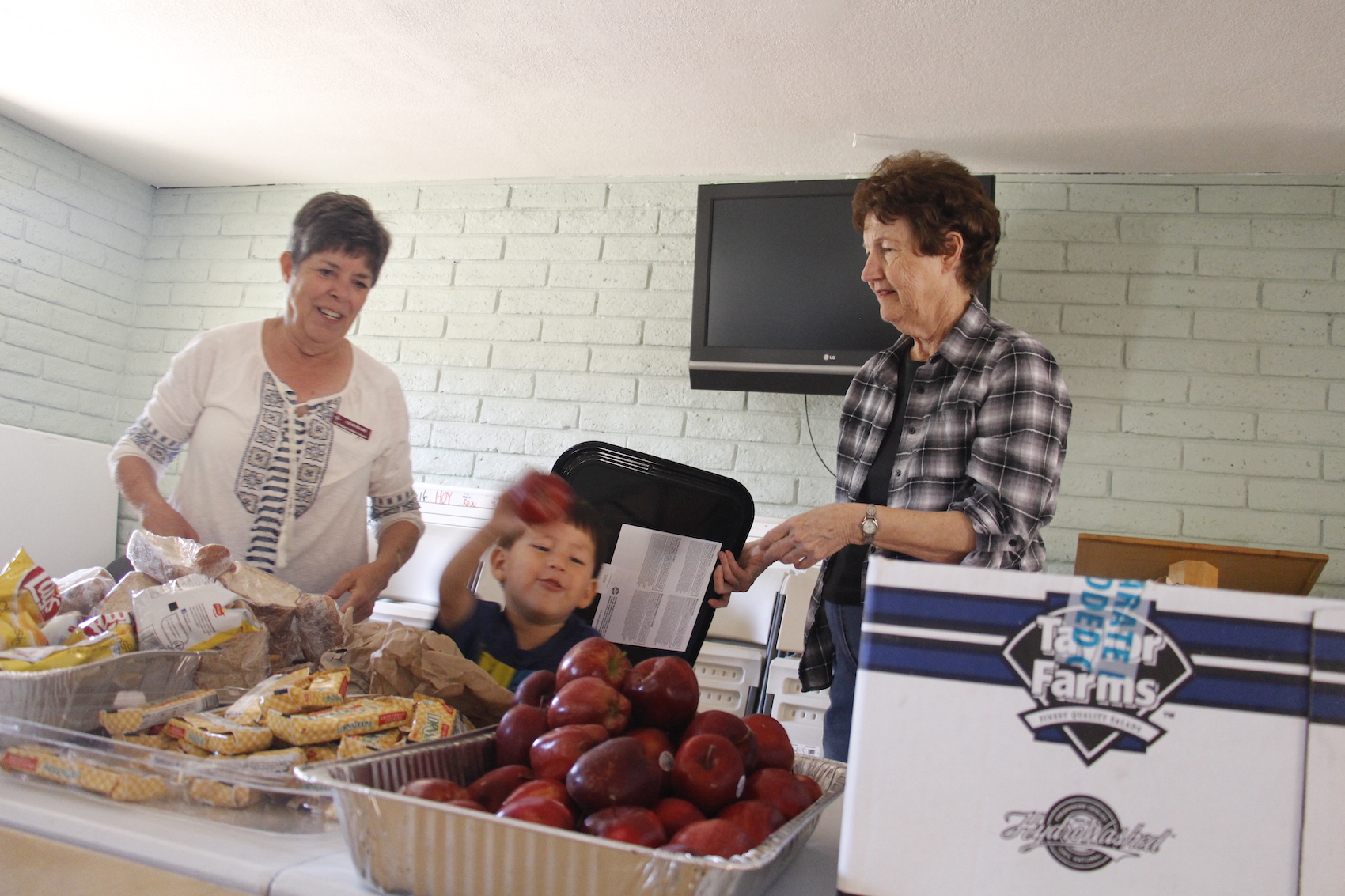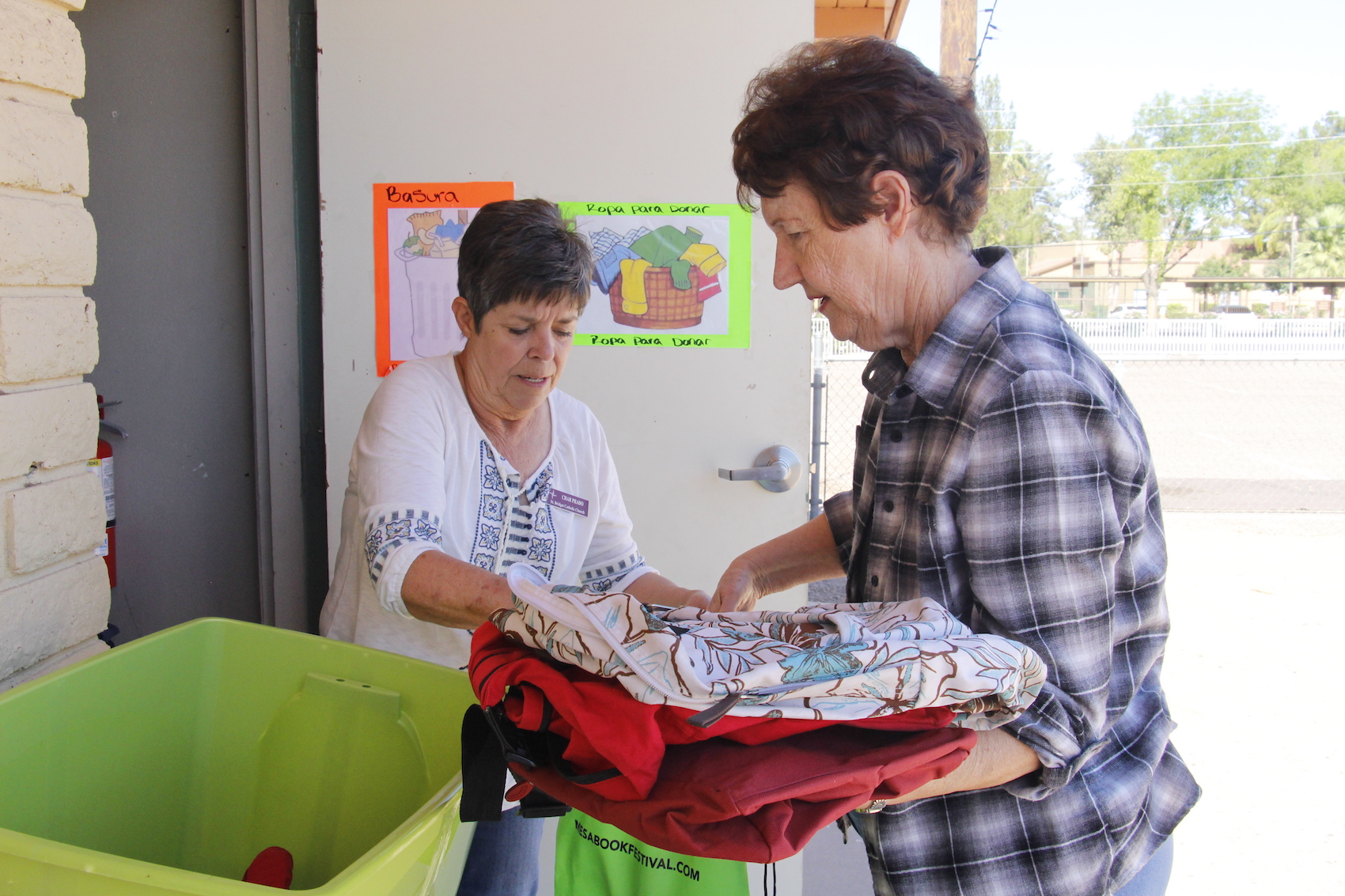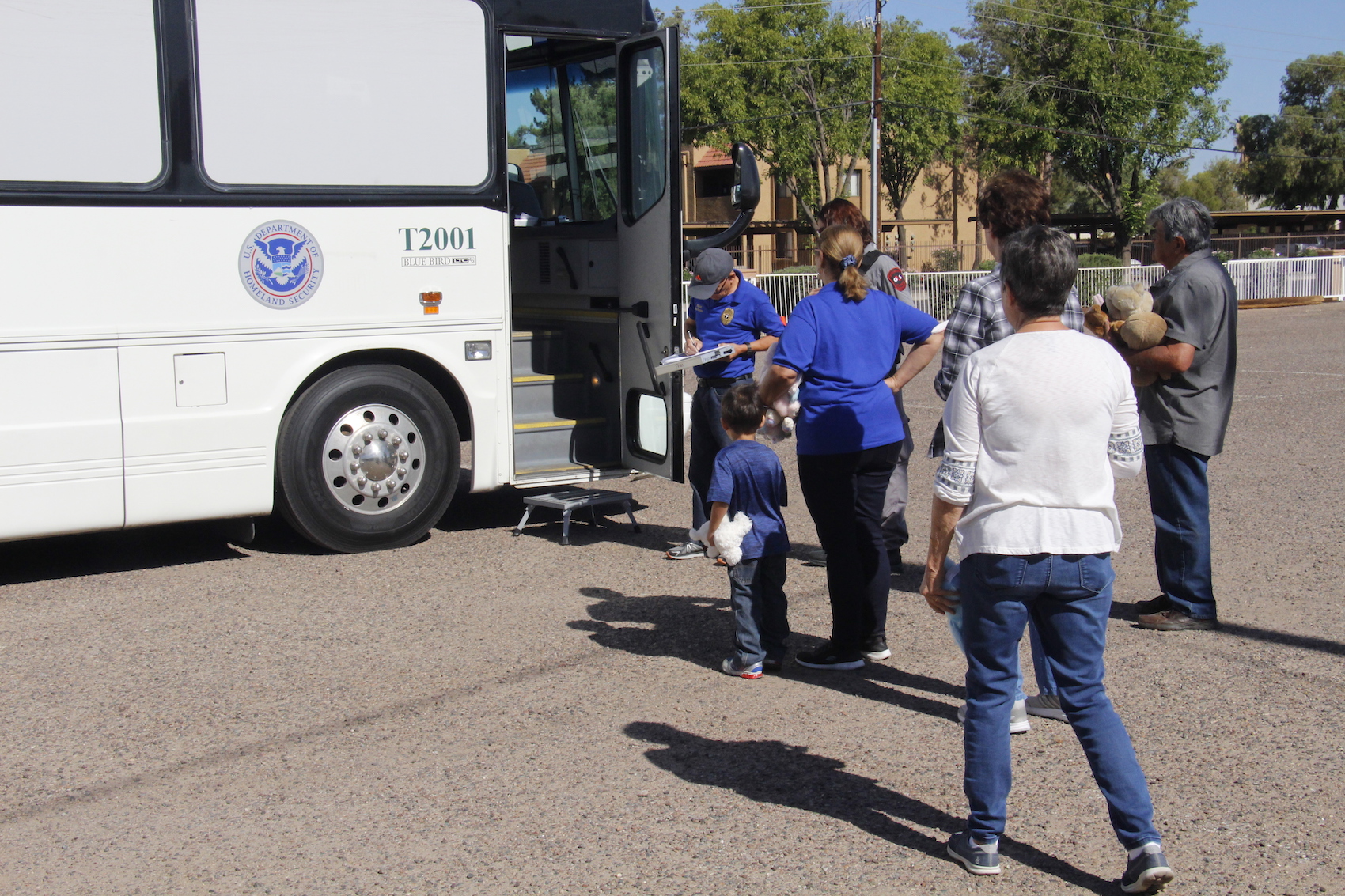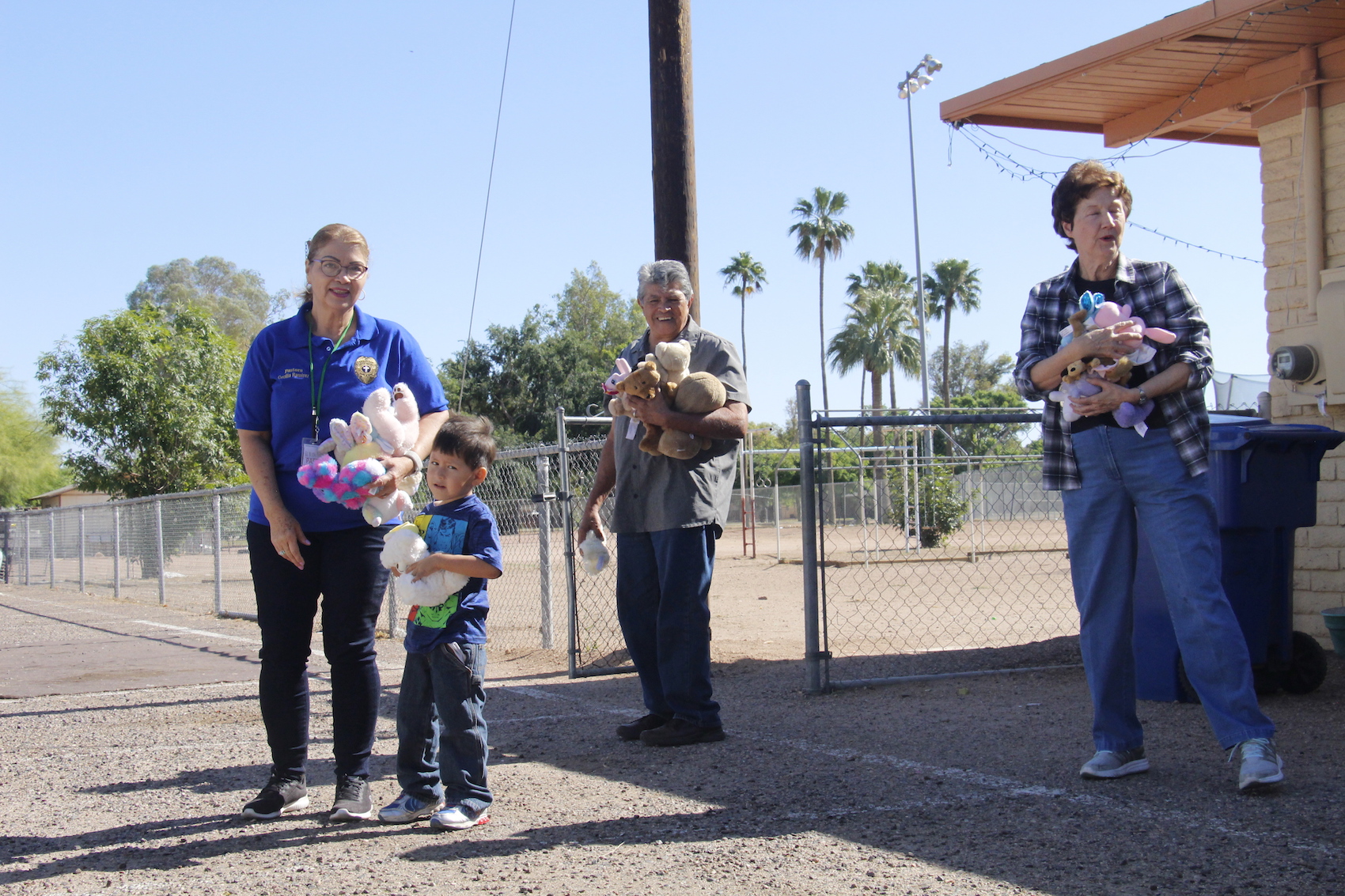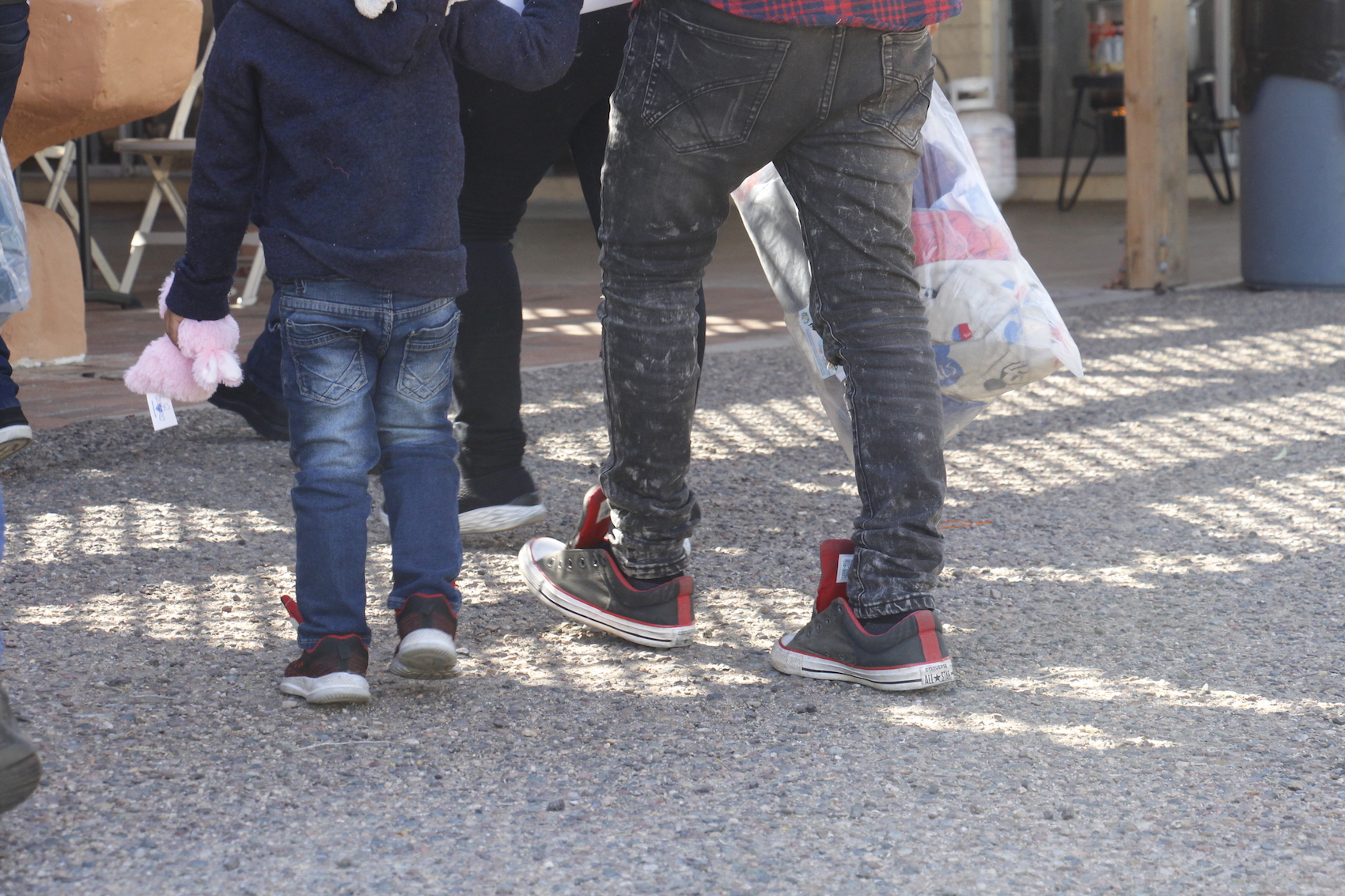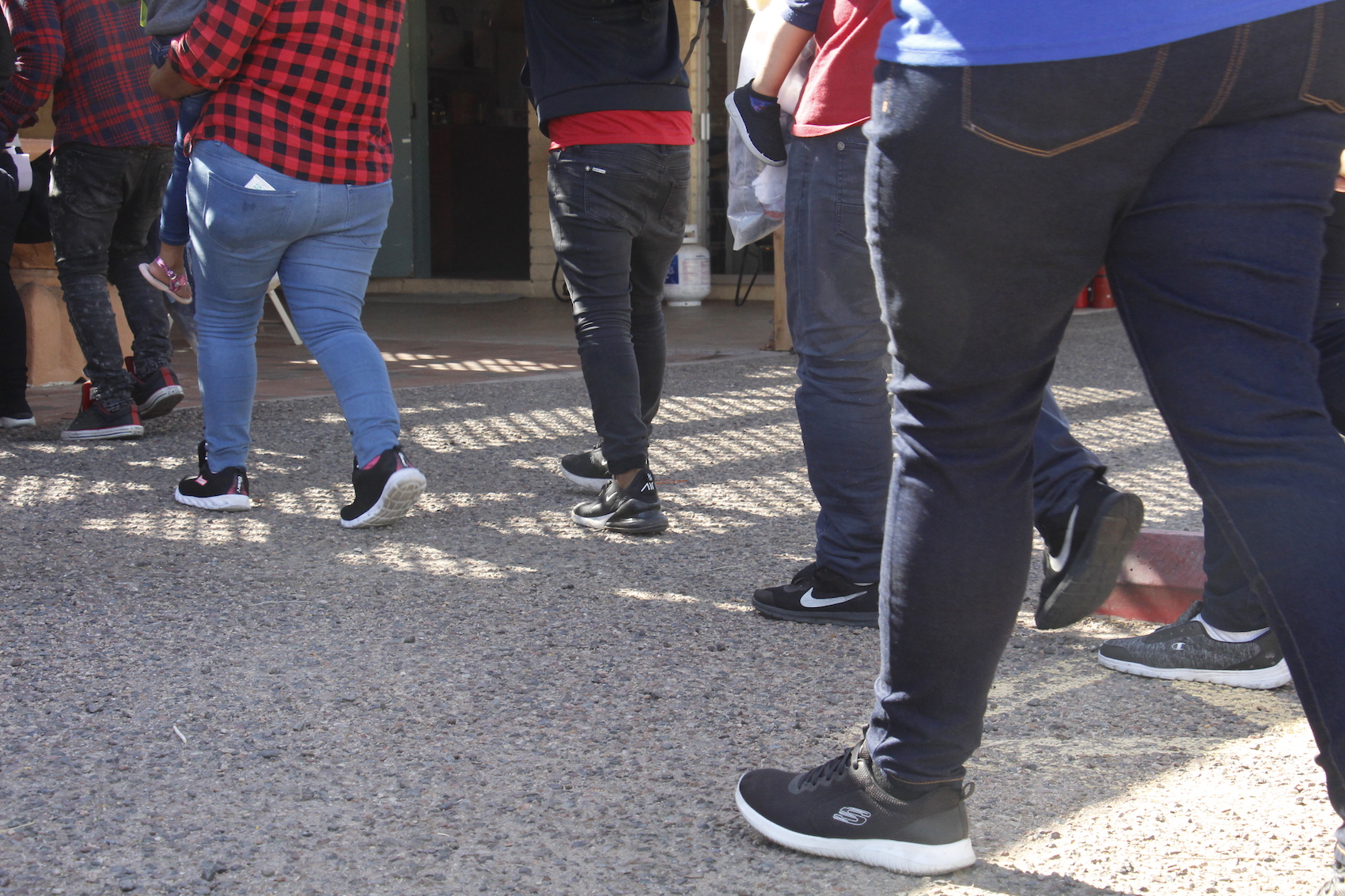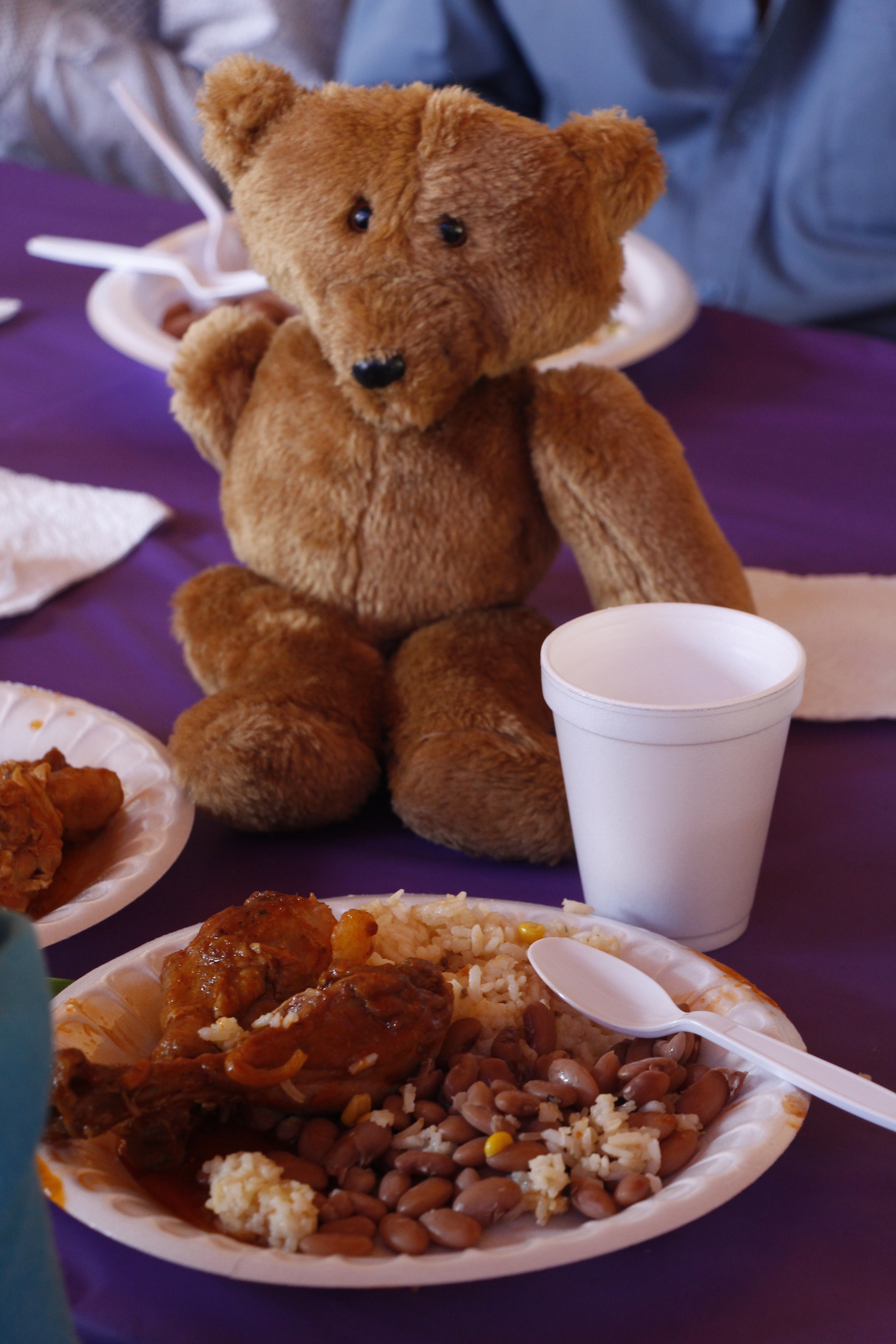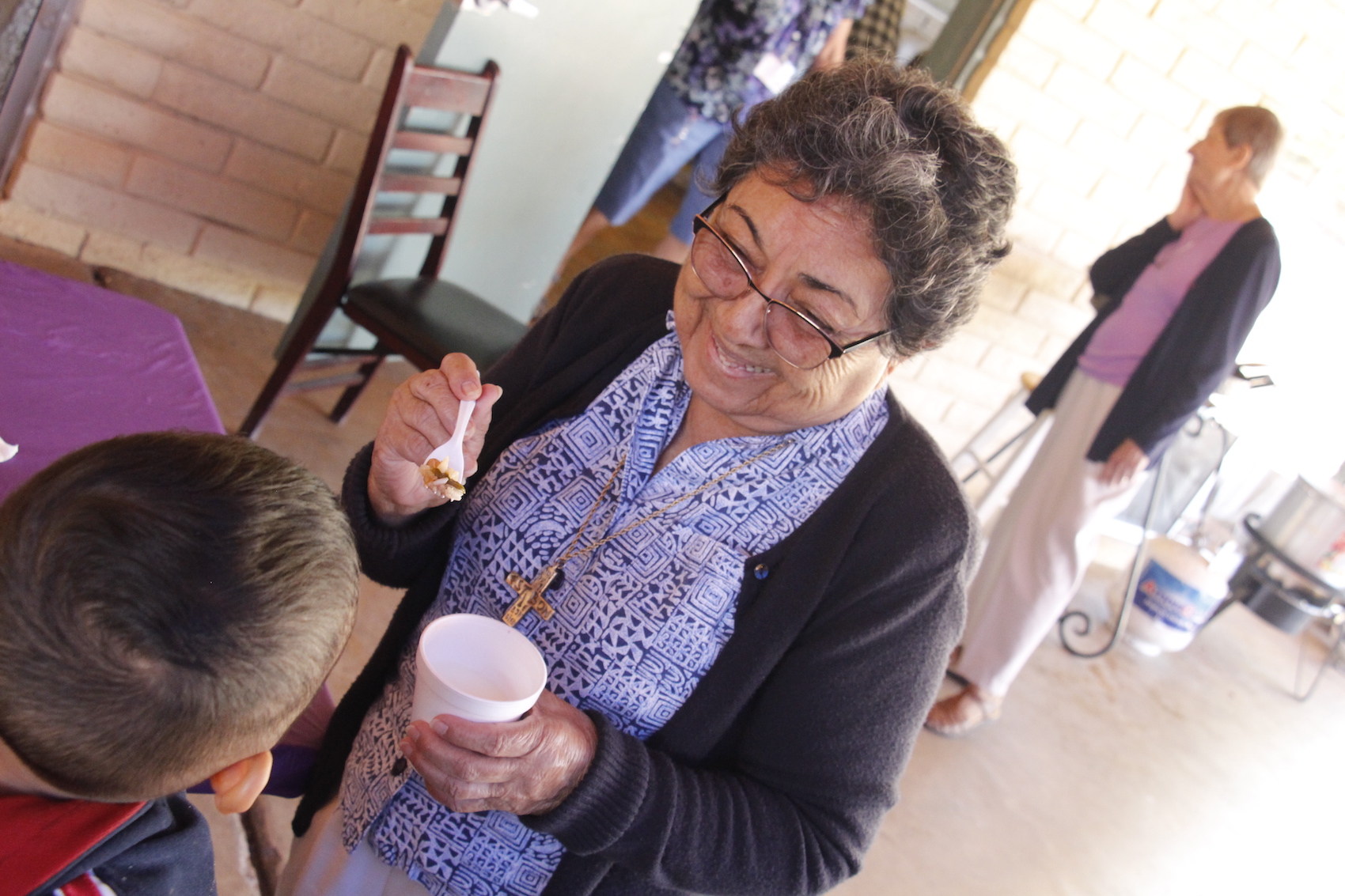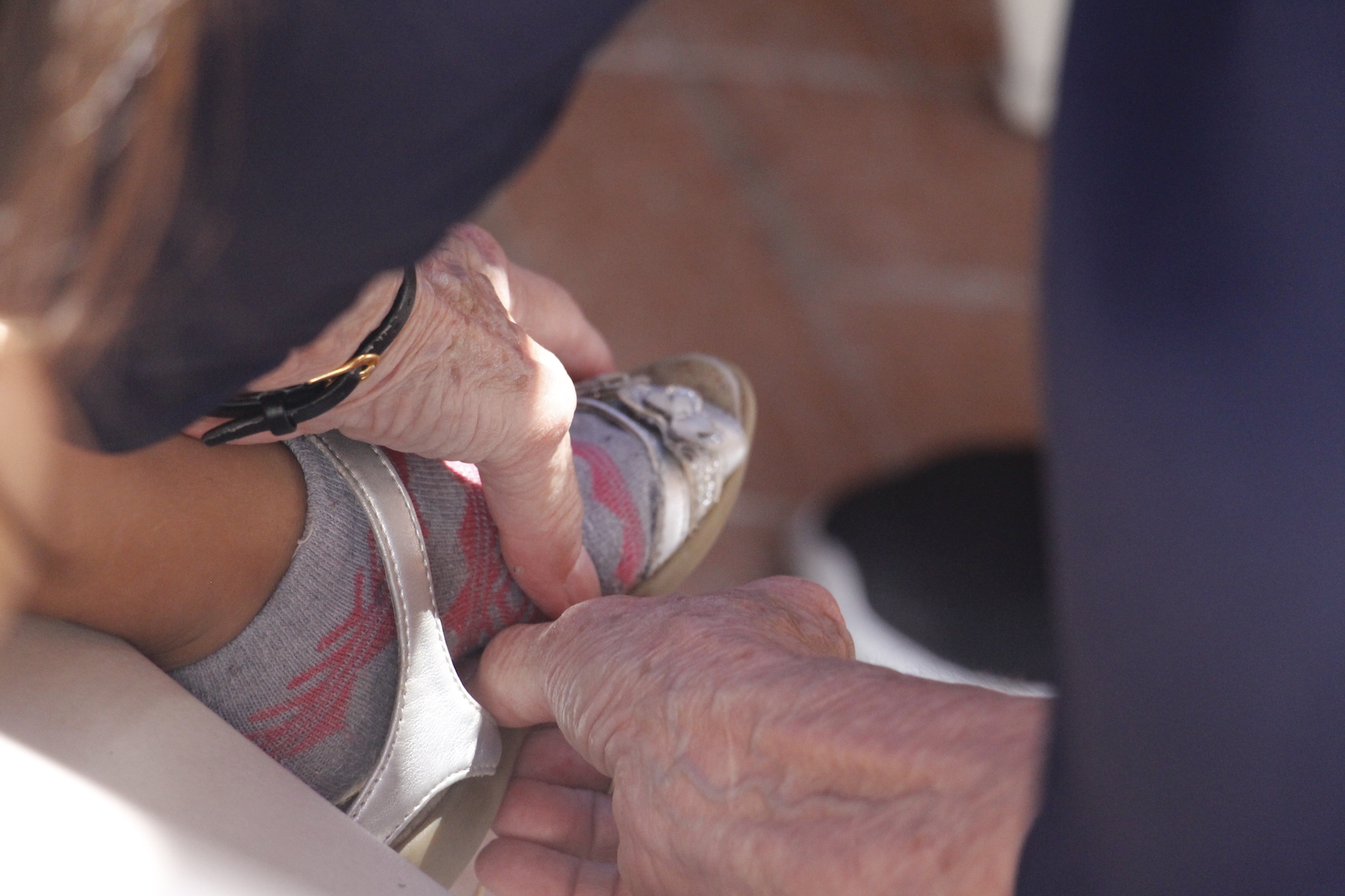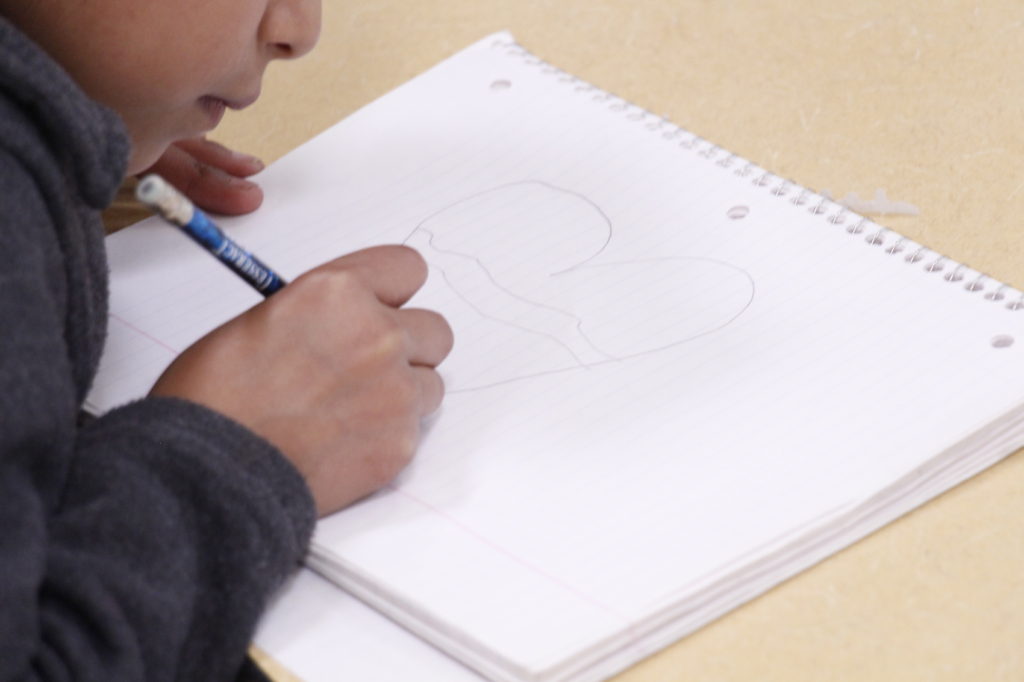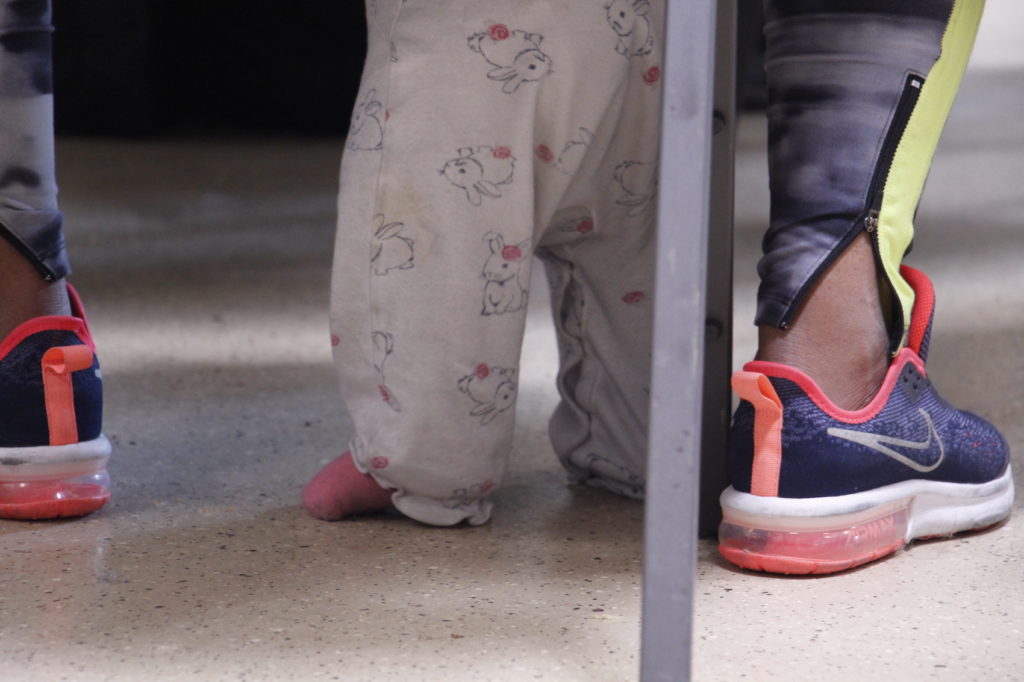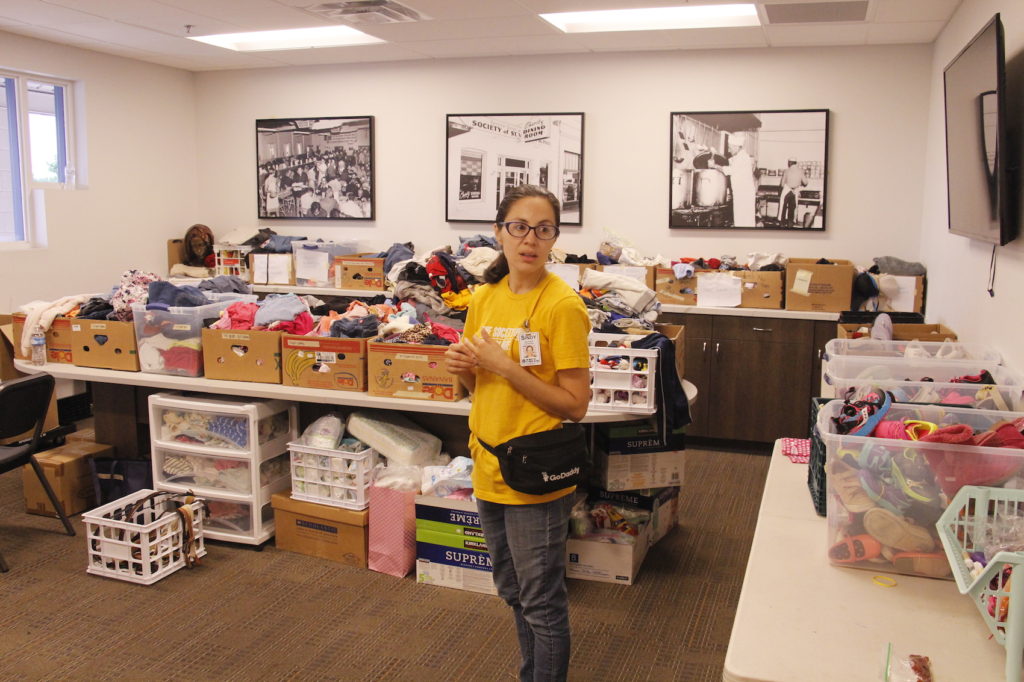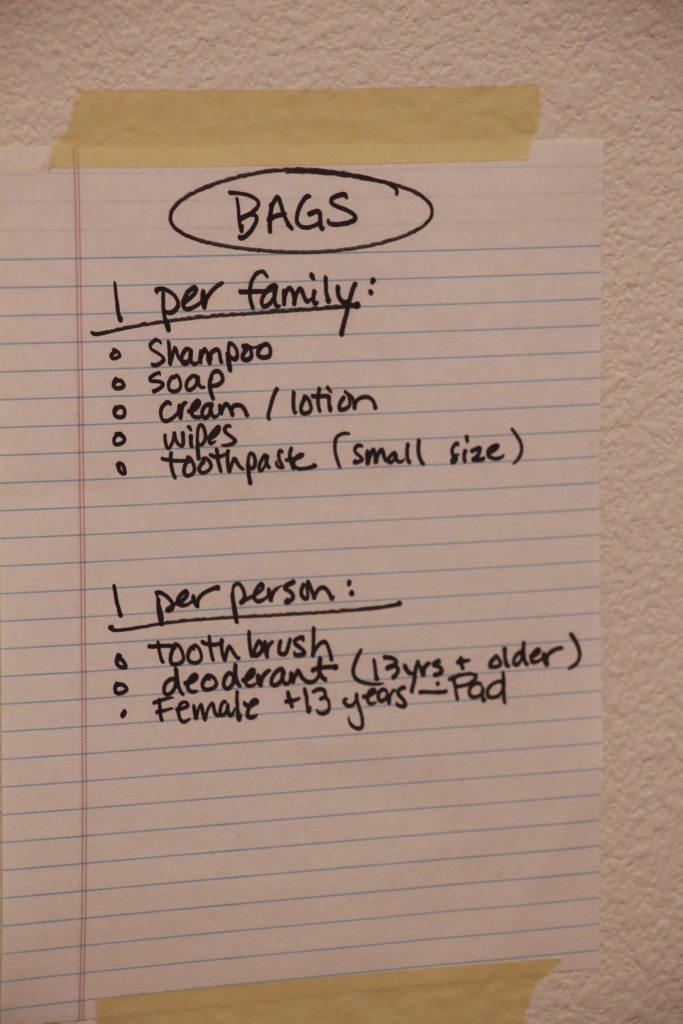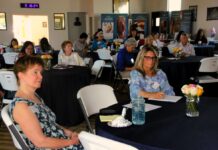Migrant drop offs yield double Exodus of asylum-seekers
Two centuries beyond the Underground Railroad, another well-orchestrated network of moving people great distances has emerged.
The modern-day “railroad,” despite the legal status of its passengers to travel, has those “railroad” workers — largely volunteers — overly eager to help, but sometimes leery of publicizing it. Most of it is intended to protect those they serve from outsiders who might not have a clear understanding of who it is they’re serving.
“This is not the political part of this. This is the humanitarian part,” said Char Prado, a member of the justice group at St. Bridget in Mesa, who helps weekly.
“This” refers to the massive drop offs of largely Guatemalan migrants U.S. Immigration and Customs Enforcement has been doing in the Valley since last fall. What began — with much media fanfare — at the charter bus station quietly moved to churches and nonprofits throughout the Valley.
Almost nine months later, these churches and agencies still regularly welcome the migrants who actually step off of ICE buses legally as asylum-seekers. Some will ultimately be recognized as refugees, but it’s not a guarantee.
“The majority of them will not win their cases which is heart-breaking,” said Quentin Orem, a religion teacher at Brophy College Preparatory. He took a small group of students to El Paso in February for a look at the migration issue.
When a mom heard about her son’s experience there, she sent an email to key Brophy leaders saying, “You know, the Jewish community is doing this in Phoenix on a daily basis.” The email went on to remind campus leaders of the Jesuits’ Universal Apostolic Preferences.
Those “preferences” say that whether you’re a Jesuit high school, college, parish or social service, four key initiatives should be among their work. One initiative is walking with the excluded, “those whose dignity has been violated,” and journeying with them in a mission of reconciliation and justice.
“Frankly, she kind of challenged us,” Orem said. Campus leaders researched what outreaches Valley volunteers had been doing. Then they started showing up at the Greyhound bus station when large drop offs were there, but the free-for-all setup kept them discerning their role.
Meanwhile, Prado, created roles for herself last December. Since she had pastor support, St. Bridget’s justice group held small waves of special collection drives that yielded necessities like clothes, shoes, backpacks and travel-friendly snacks to offer the asylum-seekers. Most only stay in the Valley up to 72 hours before departing via bus or plane to a verified U.S. contact while they await their court date. At one point, the parish’s youth assembled more than 80 travel food bags from the donations.
Prado’s other role has her meeting the asylum-seekers directly. She found small nearby churches of different denominations helping the effort.
“You can just see the exhaustion,” Prado said of volunteers at Iglesia Cristiana el Buen Pastor in Mesa, an evangelical church that welcomes asylum-seekers once a week. “They’re doing all the cooking. They’re looking for host families. They had a very small staff serving 50-60 people a week.”
They’re also maintaining a free clothing closet, preparing additional backpacks with travel-friendly snacks and items to keep the kids busy, and transforming a small classroom into makeshift lodging as needed. Managing traffic for the one shower is a must, too. A similar routine unfolds at Valley churches and nonprofits of various sizes daily. Before leaving the Valley for the summer, Prado was a regular volunteer at the small Mesa church.
“It’s been totally life-changing for me.” First it was guilt that she had forgotten to be grateful for what she did have. These families step off the bus with tattered clothes, sometimes no cell phone because they never had one or it was stolen en route, a quiet fear of the unknown and little-to-no physical possessions. Then Prado wondered where the Catholic church was in the effort — except the two Sisters of Notre Dame de Namur who support efforts at three Mesa churches a week and the St. Patrick community who helps via supplies and education, including online at stpatcc.org/matthew25.
“The more we do it, the more we see the needs of the refugees and the churches who serve them,” Prado said.
How to help
Volunteer at St. Vincent de Paul’s Day Relief Center
(602) 329-0701, or
Donate to St. Vincent de Paul; among most needed are:
- Socks
- Underwear
- Shoes
- Shoelaces
- Sturdy backpacks
- Baby wipes
(602) 266-GIVE and specify “asylum efforts”
Donate or help via St. Patrick and its partnership with Lutheran Social Services/Matthew 25 Project and learn about key terms
Apparently, there’s never enough mens’ pants size 28. One week they immediately ran out of 2T and 3T pants. One time the 24 families — 61 people — easily filled 10 pews in the tiny church for an orientation of what to expect during their brief stay. Another constant need: welcoming spirits.
“Smiles are required,” one volunteer said as the ICE bus backed into a parking spot. Basic knowledge of Spanish is optional. Each child that gets off receives a stuffed animal as a token welcome. The grown men cry once they realize where they are and that they’re safe.
“Jesus Christ said that we should have compassion. We have to do it with the love of God, the love of Jesus. We have to act on that. We love the people. That’s why we do this,” said the Rev. Hector Ramirez, an evangelical pastor.
That’s essentially what keeps the Brophy community involved too. “This is who we are. This is what it means to be Catholic and follow Christ,” Orem said.
A “Living Lent” campaign gathered toiletries, snacks, cleaning supplies, toys and clothing to help the effort and Brophy occasionally runs shelters by partnering with other outreaches. Students and staff at Benedictine University in Mesa took similar measures with Kevin Broeckling, executive vice principal citing two reasons, including belief in human dignity.
“Those risking so much deserve to be extended the love and kindness we are all capable of giving,” Broeckling said. “Also, many of our students can directly relate to what these families and individuals are going through and what drove them to make such drastic changes in their lives.”
Back at Brophy, their main role now lies in a unique partnership with the Society of St. Vincent de Paul. The charity that already feeds, clothes, houses and heals so many turned an early springtime trial run of a Day Relief Center for the asylum-seekers into a daily outreach. Some 299 people came through during that trial weekend without disturbing other programs. Numbers are now down to about 100 a day, but total some 3,300 asylum-seekers since the effort began.
“There’s nowhere else for people to be. These are people in desperate need of safety and some respite,” said Jessica Berg, chief program officer at St. Vincent de Paul.
They get it at St. Vincent de Paul during the day and board Brophy buses for shuttle service to churches, organizations and host families in the evening. Dozens of Brophy teachers, administrators and staff brave rush hour traffic to get the migrants somewhere safe and return to campus as late at 10:30 p.m.
“People are really, really concerned about the crisis,” Berg said.
New volunteers have stepped in as a result and partnerships formed. One man who had regularly commuted past St. Vincent de Paul for five years finally stopped in to volunteer; now he has racked up daily hours the last two months. A handful of Brophy volunteers showed up by 6:30 a.m. early on during summer break.
Some donors happened to drop off shopping bags of new socks and underwear while The Catholic Sun was there, and a California donor was willing to mail in clothing items. At least three or four kids arrive daily barefoot with others wearing improper sizes.
“There’s a lot of embarrassment. It’s just another level of ‘we care about you — the whole person,’” said Taylor Lutich, relief program manager. “Having a fresh clean pair of clothes, they leave this room so happy and renewed.”
Some people occasionally renew their perspective on the journey of migrants and asylum-seekers via the annual Migrant Trail, a week-long, 75-mile trek from Sonora, Mexico to Tucson, now in its 16th year. This marked the second Migrant Trail walk for Br. Sam Nasada, OFM, a transitional deacon currently serving at the Franciscan Renewal Center in Scottsdale. He previously established a new Franciscan community near Douglas, Arizona as anti-immigration sentiment increased.
“I felt like it was more of a pilgrimage for me — going to the sacred places where lives have been lost and most likely people were never remembered,” Br. Sam said, noting the often lengthy identification process. He walked up to six hours a day with 50 others from across the U.S. He remembers the cold nights sleeping outdoors like the migrants would do.
They did a roll call en route naming those lost in the desert or called out “desconocido,” if unknown. The crowd responded with “presente.”
He encouraged volunteers to get involved via St. Vincent de Paul or some other church, even if it’s not a Catholic one. “Encounter them on a human level, staring the face of God, both ways.”

A child fills in a hand-drawn heart in an activity space within St. Vincent de Paul’s Day Relief Center. (Ambria Hammel/CATHOLIC SUN) 
A parent and child wait in air-conditioned safety at St. Vincent de Paul’s Day Relief Center for travel arrangements to their final U.S. destination. (Ambria Hammel/CATHOLIC SUN)

Sindy de la Torre, Day Relief Coordinator at St. Vincent de Paul, explains the “Ropa Room’s” purpose and layout. (Ambria Hammel/CATHOLIC SUN) 
A sheet reminds volunteers what each asylum-seeker and family can take from the “Ropa Room.” (Ambria Hammel/CATHOLIC SUN)
Related
Key definitions (immigrant, migrant, refugee, asylum seeker)
More African migrants are trying to enter the US through the Mexican border (QuartzAfrica)
Not just a Phoenix issue – Learn about migrants in Maine
As immigration policy changes, so does work of Catholic organizations (CNS – June 21)
Mexican bishops meet with president on peace, migration (CNA – June 20)
Mexico’s bishops respond to U.S. migration deal (Vatican News – June 11)
Asylum-seekers sent back to Mexico
Mexican shelters strain with arrival of asylum-seekers at U.S. border (CNS – Feb. 11)
Kino Border Initiative Dinner inspires migrants seeking asylum, faithful there to help



